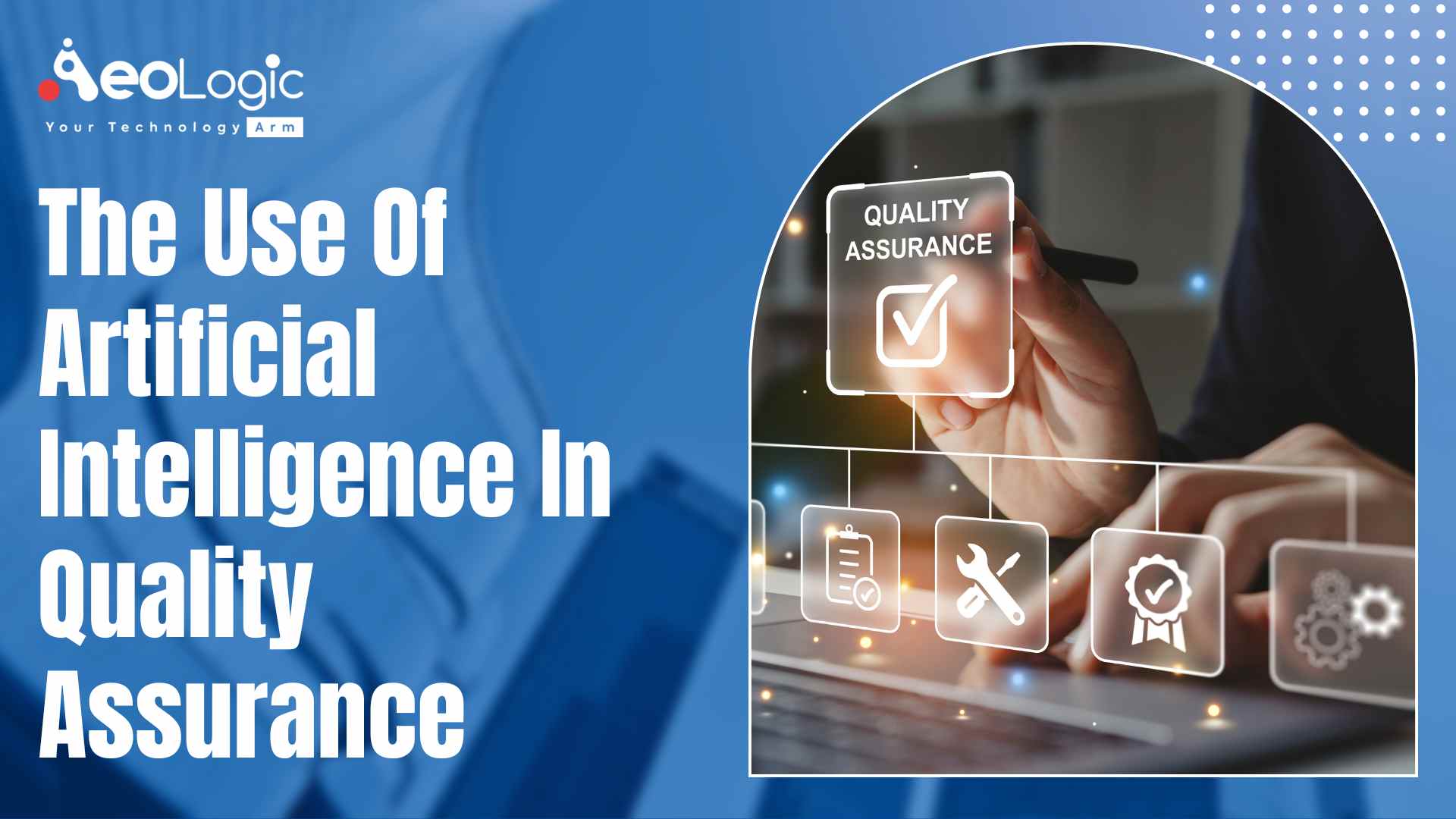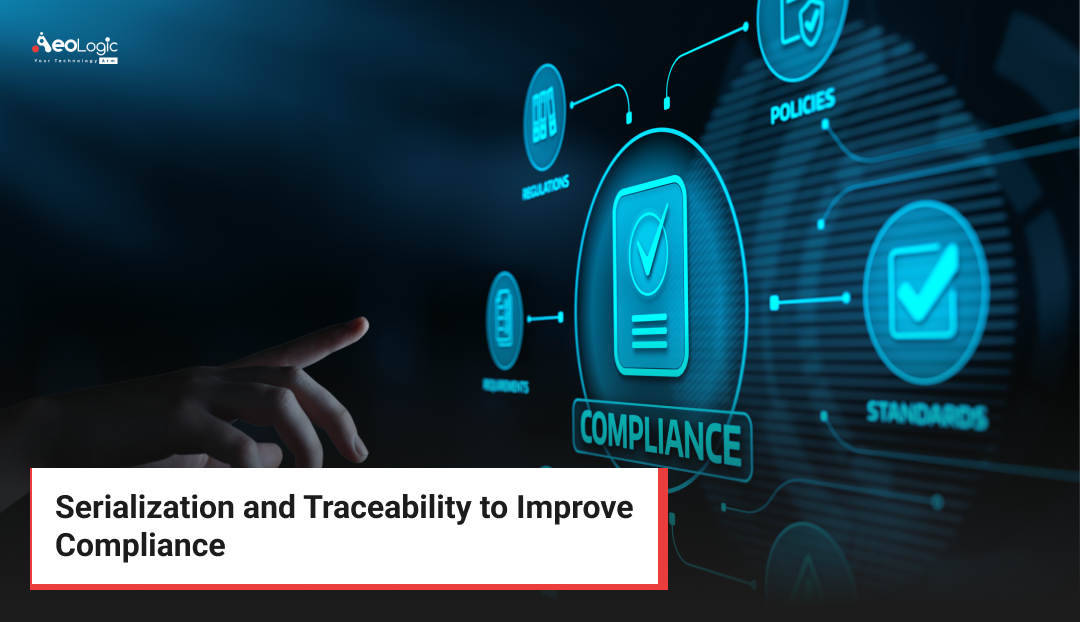Artificial Intelligence (AI) has been revolutionizing various industries, including quality assurance. With AI, businesses can automate and streamline their quality assurance processes, making it more efficient, effective, and accurate. In this blog, we will discuss the use of AI in quality assurance and how it can benefit businesses.
Why and What is AI in Quality Assurance?
Quality assurance is a critical process for any organization that wants to produce high-quality products or services. It involves various activities aimed at ensuring that the products or services meet the required standards and specifications. Traditionally, quality assurance has been a time-consuming and labor-intensive process, requiring a significant amount of human effort. However, with the advent of Artificial Intelligence (AI), quality assurance can now be more efficient, effective, and accurate.
AI is the simulation of human intelligence processes by machines, especially computer systems. The technology involves machine learning, natural language processing, and other cutting-edge technologies that enable machines to learn from data and improve their performance over time. AI is already revolutionizing the way businesses operate and is proving to be a game-changer in quality assurance.
Also Read: The Future Scope of SEO with Machine Learning and AI
Applications of AI in Quality Assurance
Here are some of the ways in which AI is being used in quality assurance:
Automated Testing
One of the most significant applications of AI in quality assurance is in automated testing. Traditionally, testing has been a manual process that requires a lot of time and effort. However, with AI-powered tools, businesses can now automate the testing process, reducing the time and effort required significantly. AI-powered testing tools can detect errors and bugs in the software code and provide accurate reports on the system’s functionality.
Predictive Maintenance
Another application of AI in quality assurance is predictive maintenance. AI-powered predictive maintenance systems can analyze data from machines and predict when they are likely to fail. This allows businesses to schedule maintenance activities before the machine breaks down, reducing downtime and improving productivity.
Quality Control
AI is also being used in quality control to identify defects in products. With AI-powered tools, businesses can analyze data from product inspections and detect defects that would otherwise go unnoticed. AI-powered quality control systems can also provide insights into the root cause of defects, enabling businesses to make the necessary changes to prevent them from happening again.
Image and Speech Recognition
AI-powered image and speech recognition technologies are also being used in quality assurance. For example, image recognition can be used to identify defects in products by analyzing images of the products. Similarly, speech recognition can be used to analyze customer feedback and identify areas where improvements can be made.
Fraud Detection
Finally, AI is being used in quality assurance to detect fraud. AI-powered fraud detection systems can analyze large volumes of data and identify patterns that indicate fraudulent activity. This helps businesses to prevent fraudulent transactions and maintain the integrity of their products and services.
Also Read: Top AI Tools You Must Try Out Today
5 Benefits of AI-led Quality Assurance for Business
Artificial Intelligence (AI) is transforming the way businesses approach quality assurance. By leveraging the power of machine learning, natural language processing, and other cutting-edge technologies, AI is helping businesses to improve the quality of their products or services while reducing costs and increasing efficiency. Here are five benefits of AI-led quality assurance:
1. Improved Accuracy
One of the biggest advantages of AI-led quality assurance is the improved accuracy it offers. AI-powered tools can analyze large amounts of data and identify patterns and anomalies that humans might miss. This means that businesses can catch defects and errors before they become bigger problems, leading to better-quality products or services.
2. Increased Efficiency
AI can automate many of the tasks involved in quality assurance, such as testing, inspection, and data analysis. This means that businesses can complete these tasks more quickly and efficiently, freeing up resources and reducing costs. By automating repetitive and time-consuming tasks, AI-led quality assurance enables businesses to focus on more critical tasks that require human intervention.
Also Read: The Role of AI in Shaping the Future of Education Industry
3. Predictive Maintenance
AI-powered predictive maintenance systems can analyze data from machines and predict when they are likely to fail. This allows businesses to schedule maintenance activities before the machine breaks down, reducing downtime and improving productivity. Predictive maintenance also means that businesses can avoid costly repairs or replacements and prolong the lifespan of their equipment.
4. Better Customer Experience
By analyzing customer data, AI-led quality assurance can identify areas where improvements can be made to enhance the customer experience. For example, businesses can use speech recognition to analyze customer feedback and identify areas where they can improve their products or services. By improving the customer experience, businesses can increase customer loyalty and retention.
5. Cost Savings
By automating and streamlining quality assurance processes, AI-led quality assurance can reduce costs significantly. For example, automated testing can be completed more quickly and accurately than manual testing, reducing the need for human testers. This means that businesses can save on labor costs while improving the quality of their products or services.
As AI technology continues to evolve, we can expect to see even more innovative applications of this game-changing technology in quality assurance.
Also Read: The Role of AI in Education And Learning: Just Promises Or Revolution
Conclusion
AI is already transforming the way businesses approach quality assurance. By automating testing, enabling predictive maintenance, improving quality control, recognizing images and speech, and detecting fraud, AI is helping businesses to reduce costs, improve efficiency, and deliver higher-quality products and services. As AI technology continues to evolve, we can expect to see even more innovative applications of this game-changing technology in quality assurance.
Are you looking to implement Artificial Intelligence into your business? If yes, so, please feel free to contact us at support@aeologic.com
Related Blogs:
- How AI/ML Can Change the Public Transportation Industry
- Transforming Business With Digital Technology in the Oil Palm Industry in India
- Importance of Digital Asset Management in the Retail Industry
- How AI is Transforming the Agriculture Industry
- 10 Ways to Use Artificial Intelligence to Improve Business Processes
- The Future of IoT Technology in Convenience Stores
- Building Manufacturing Resilience Through AI and ML

I’m Deepika Pandey, an SEO strategist and content writer with 6+ years of experience. I create SEO-friendly content that drives traffic and engages readers. I combine data insights with creativity to help businesses grow their online presence effectively.






